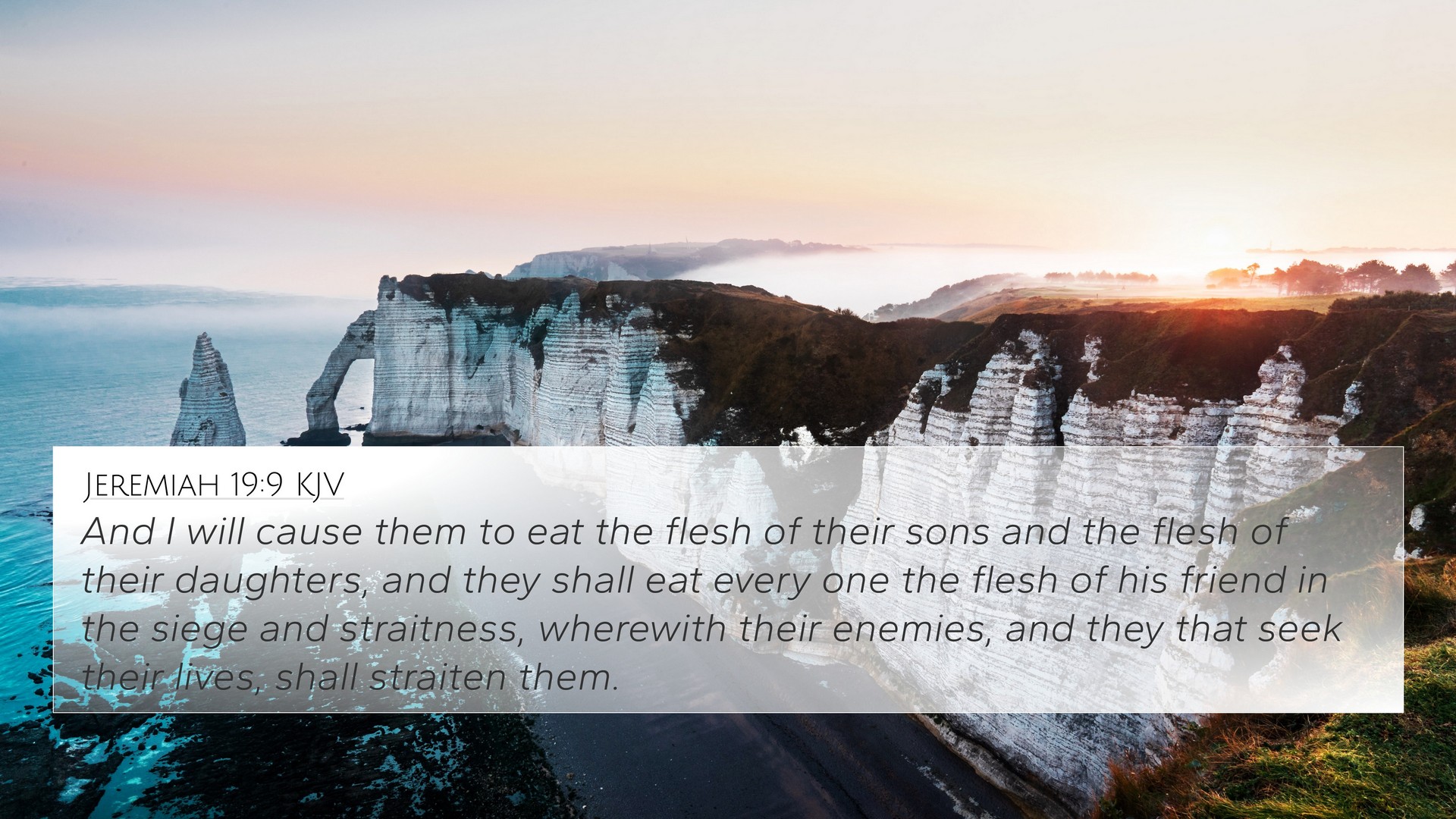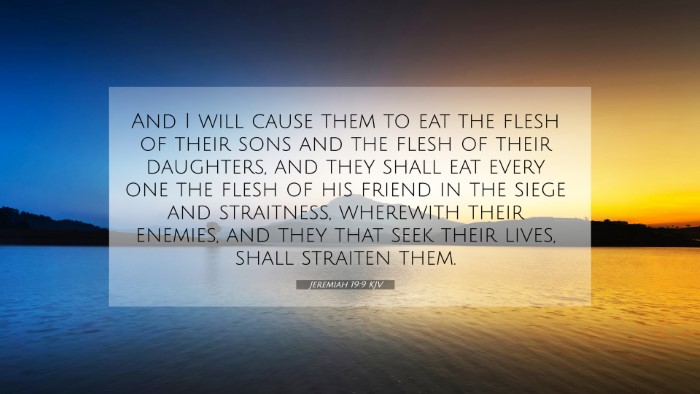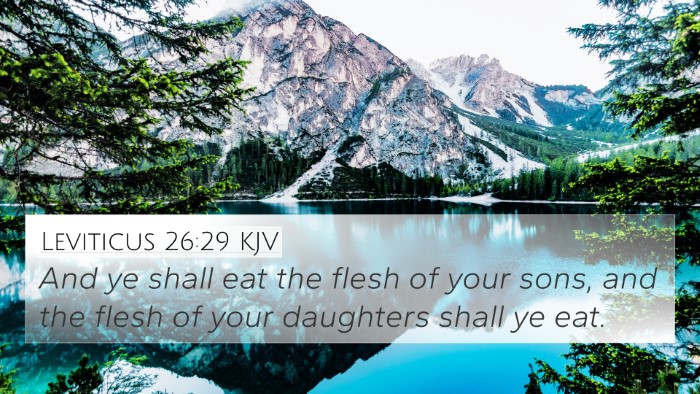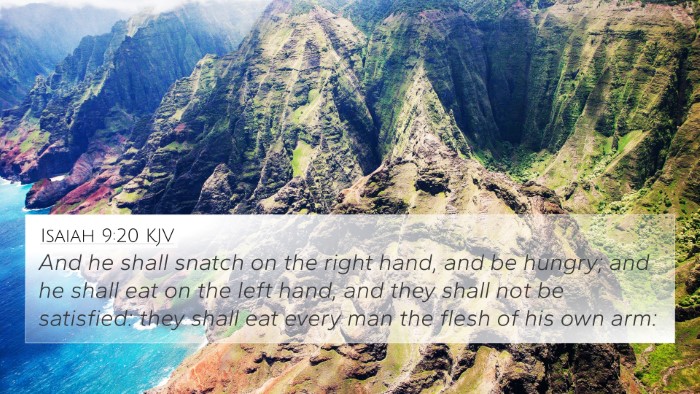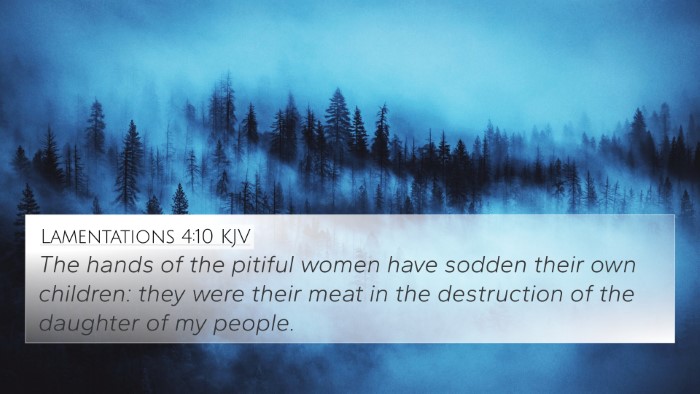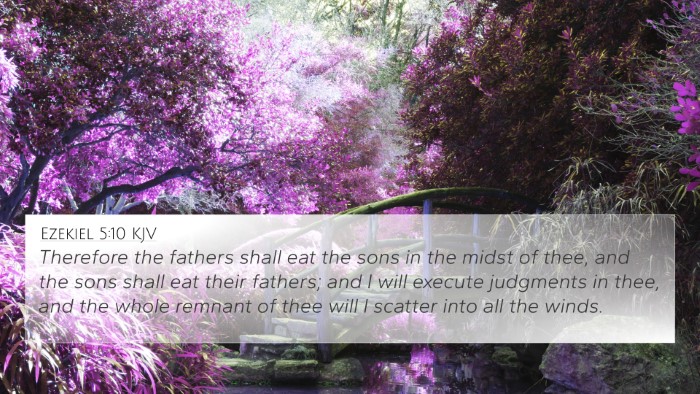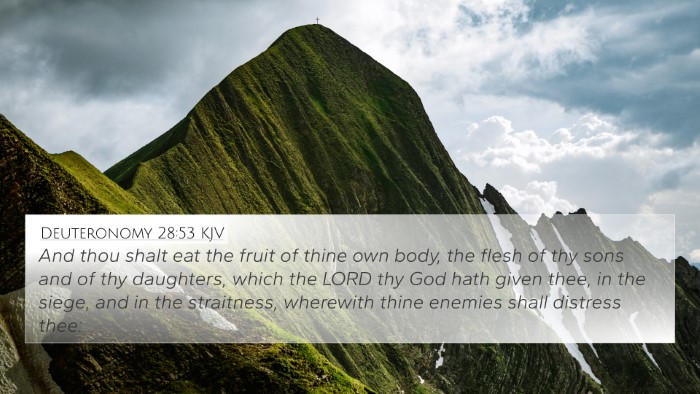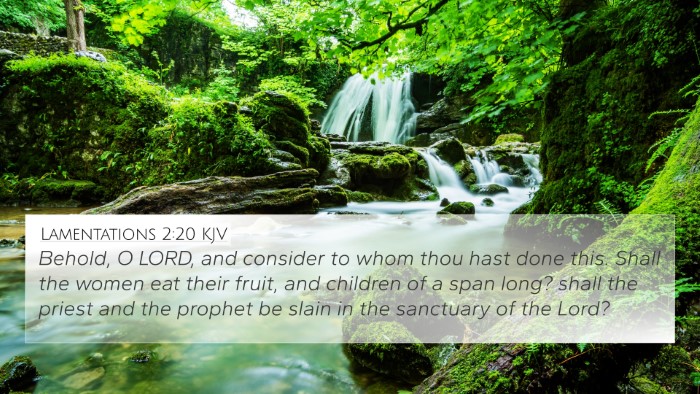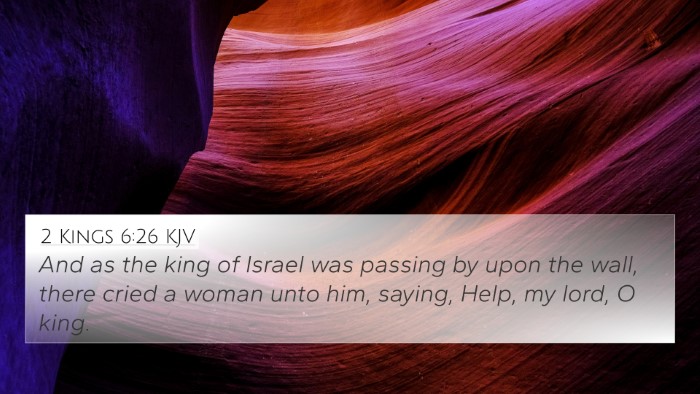Understanding Jeremiah 19:9
The verse Jeremiah 19:9 states: "And I will cause them to eat the flesh of their sons and the flesh of their daughters; and they shall eat one another's flesh during the siege and in the straitness, wherewith their enemies, and they that seek their lives, shall straiten them."
This verse has profound implications in understanding the gravity of sin and the severity of God's judgment. This summary compilation aims to interpret the meaning of this verse by drawing insights from several public domain commentaries, specifically those by Matthew Henry, Albert Barnes, and Adam Clarke.
Contextual Background
Jeremiah, known as the 'weeping prophet', delivered messages of warning and judgment to the people of Judah. The context surrounding this verse is paramount, as it reflects the dire consequences of the people's rebellion against God.
Insights from Commentaries
Matthew Henry's Commentary
Matthew Henry discusses the severity of God's judgment as an act of divine retribution against the backdrop of unrepentant sin. He highlights the shocking nature of the prophecy, emphasizing the cannibalistic behavior that would emerge as a result of famine during the siege. This is not only a physical affliction but also symptomatic of Israel's spiritual decline.
Albert Barnes' Notes
Albert Barnes notes that such extreme measures signify the utter desperation that would overcome the people. The prophecy serves as a stark reminder of the covenant curses outlined in Deuteronomy 28:53-57, where similar judgments are foretold as consequences of disobedience. Barnes underscores that this prophecy indicates the complete breakdown of social order resulting from divine judgment.
Adam Clarke's Commentary
Adam Clarke provides a theological and anthropological exploration of this passage, suggesting that it illustrates the depths of human depravity when cut off from divine guidance. Clarke interprets this gruesome imagery as a reflection of the nation’s rejection of God, revealing that in their suffering, they would resort to the most heinous acts, indicative of despair.
Cross-Referencing Biblical Texts
To further enhance our understanding of Jeremiah 19:9, we will now look at several cross references that enrich the message conveyed by this verse.
- Deuteronomy 28:53-57: Describes the dire consequences of disobedience, including cannibalism during a siege.
- Lamentations 2:20: Reflects on the sorrowful state of Jerusalem and the horrific outcomes of judgment.
- Leviticus 26:29: Represents God’s warning about severe consequences of forsaking His commandments.
- Ezekiel 5:10: Talks about the fate of the people during siege conditions and the resulting agony.
- Matthew 24:19: Jesus mentions woes to pregnant women during times of tribulation.
- Revelation 6:8: Discusses famine and death as a direct consequence of divine judgment in the last days.
- Jeremiah 15:2: Documents God's warning to Jeremiah about the fate of the people when facing judgment.
Thematic Connections
The themes present in Jeremiah 19:9 resonate with broader biblical narratives concerning sin, judgment, and redemption. Understanding these themes through cross-referencing creates deeper insights into God's character and His relationship with humanity.
Tools for Bible Cross-Referencing
Utilizing tools for Bible cross-referencing such as concordances, study Bibles, and various reference guides can greatly assist in comprehending the interconnectedness of scripture. Engaging in cross-reference Bible study helps in identifying themes and teachings shared across both the Old and New Testaments.
Conclusion
Jeremiah 19:9 serves as a sobering reminder of the consequences that arise from turning away from God. The insights drawn from various commentaries and the cross-references provided not only illustrate the prophetic warning but also remind us of the importance of adhering to God’s commandments. By understanding these connections, we can better grasp the gravity of sin and the need for repentance and restoration through God’s mercy.
